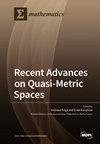利用相位类型分布对飞机往返时间进行定量和定性分析
IF 2.2
3区 数学
Q1 MATHEMATICS
引用次数: 0
摘要
商业航空公司面临的主要问题之一是乘客登机所需的时间。此外,大多数航空公司都希望增加飞机在两个或更多城市之间的飞行次数。因此,将整体登机时间缩短几分钟将对飞机的飞行次数产生重大影响,并能改善中位数、第 75 和第 95 百分位数等关键指标。众所周知,平均值可能会低估或高估任何模型的性能,因此,除平均值外,研究这些指标也至关重要。虽然有大量文献研究了减少登机时间的策略,但在研究特定登机策略下的登机时间时,情况却并非如此。因此,本文的重点是分析(使用合适的随机模型)和数值研究缩短平均时间对关键指标的影响,以帮助系统制定相应的计划。为此,我们采用了一种著名的概率分布,即相型分布,来模拟登机过程中涉及的各种事件。示例性数值结果显示,当平均登机时间缩短时,百分位数值也会降低。与仅依赖平均登机时间相比,了解登机时间的百分位数将有助于管理层采取更好的登机策略,进而增加飞机的飞行架次。本文章由计算机程序翻译,如有差异,请以英文原文为准。
Quantitative and Qualitative Analysis of Aircraft Round-Trip Times Using Phase Type Distributions
One of the major issues facing commercial airlines is the time that it takes to board passengers. Further, most airlines wish to increase the number of trips that an aircraft can make between two or more cities. Thus, reducing the overall boarding times by a few minutes will have a significant impact on the number of trips made by an aircraft, as well as enabling improvements in key measures such as the median and 75th and 95th percentiles. Looking at such measures other than the mean is critical as it is well known that the mean can under- or overestimate the performance of any model. While there is considerable literature on the study of strategies to decrease boarding times, the same cannot be said about the study of the boarding time given a particular strategy for boarding. Thus, the focus of this paper is to study analytically (using suitable stochastic models) and numerically the impact of reducing the average time on the key measures to help the system to plan accordingly. This is achieved using a well-known probability distribution, namely the phase type distribution, to model various events involved in the boarding process. Illustrative numerical results show a reduction in the percentile values when the average boarding times are decreased. Understanding the percentiles of the boarding times, as opposed to relying only on the average boarding times, will help management to adopt a better boarding strategy that in turn will lead to an increase in the number of trips that an aircraft can make.
求助全文
通过发布文献求助,成功后即可免费获取论文全文。
去求助
来源期刊

Mathematics
Mathematics-General Mathematics
CiteScore
4.00
自引率
16.70%
发文量
4032
审稿时长
21.9 days
期刊介绍:
Mathematics (ISSN 2227-7390) is an international, open access journal which provides an advanced forum for studies related to mathematical sciences. It devotes exclusively to the publication of high-quality reviews, regular research papers and short communications in all areas of pure and applied mathematics. Mathematics also publishes timely and thorough survey articles on current trends, new theoretical techniques, novel ideas and new mathematical tools in different branches of mathematics.
 求助内容:
求助内容: 应助结果提醒方式:
应助结果提醒方式:


